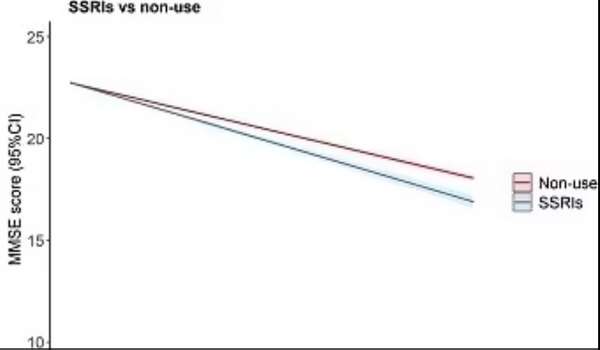Swedish researchers have found that selective serotonin reuptake inhibitors (SSRIs) may accelerate cognitive decline in patients with dementia.

A study conducted at Karolinska Institutet analyzed data from nearly 19,000 dementia patients with an average age of 78, 20% of whom were taking antidepressants. The results showed that those using SSRIs experienced a more rapid decline in memory, with their cognitive scores decreasing by an additional 0.3 points on a 30-point scale annually. Higher doses were linked to an even greater decline of 0.42 points per year.
Beyond cognitive decline, antidepressant use in dementia patients was associated with a 7% increase in mortality and an 18% rise in fracture risk. High doses of SSRIs had the most pronounced effects, increasing the risk of severe dementia by 35%, mortality by 18%, and fractures by 25%. However, researchers caution that depression itself may contribute to dementia progression, making it difficult to draw definitive conclusions.

Interestingly, in patients with frontotemporal dementia, antidepressants appeared to slow disease progression. This suggests that the effects of SSRIs on dementia may vary depending on the subtype of the condition.
With dementia affecting nearly 7 million Americans and close to a million Britons, its prevalence is expected to rise significantly. The economic burden of dementia care in the UK alone is projected to reach £90 billion within 15 years. While the connection between antidepressants and dementia remains under investigation, this study underscores the need for careful medication management in cognitively impaired patients.






